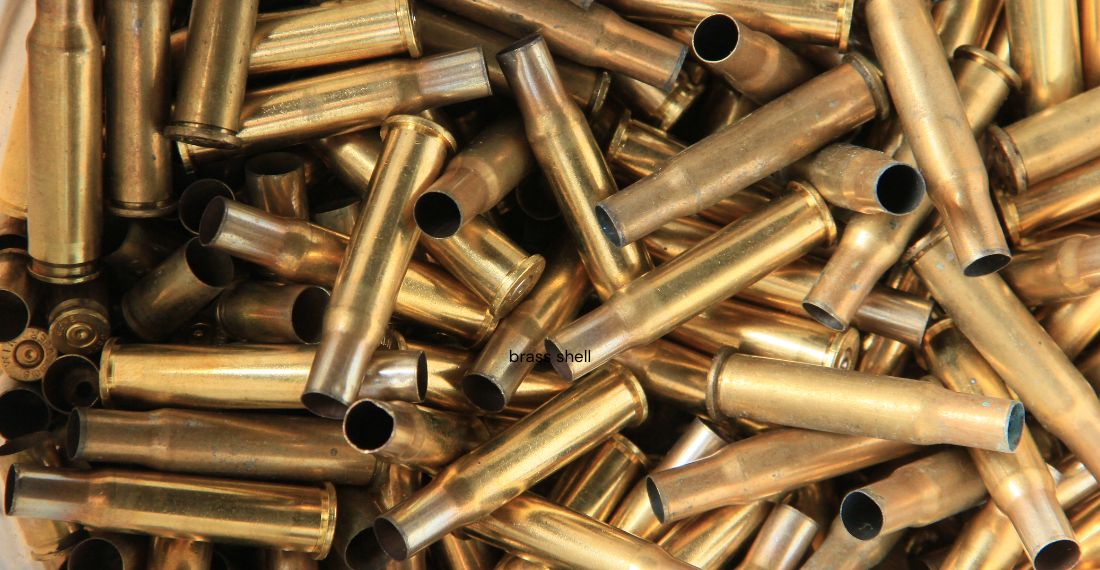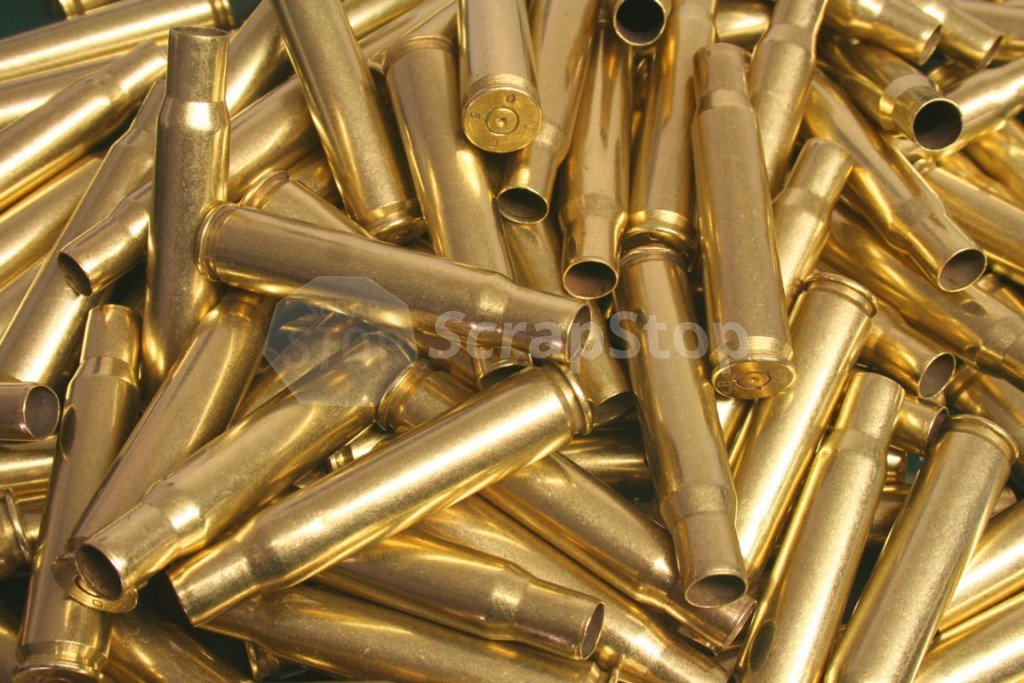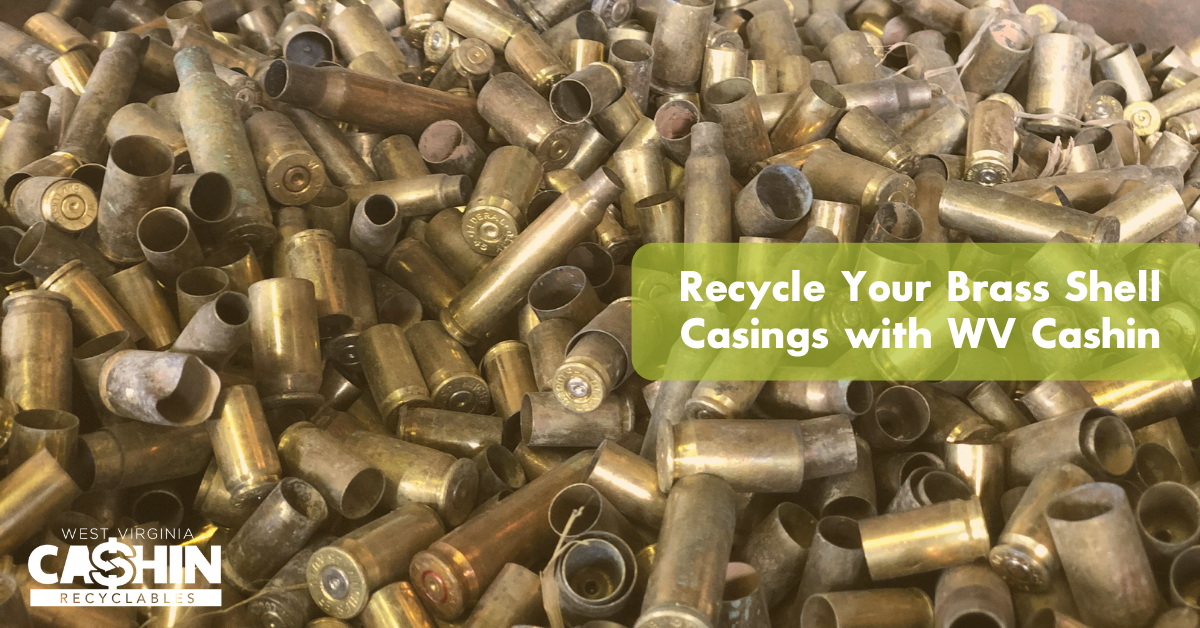Introduction
Recycling Scrap Ammo, The proper disposal of scrap ammunition, commonly known as spent ammo, is a crucial responsibility for all firearm owners and enthusiasts. Recycling scrap ammo not only helps protect the environment from potential hazards but also promotes the sustainable use of resources. In this article, we will explore safety precautions, preparation techniques, and various recycling options for scrap ammunition.
How to Prep Ammo Before Recycling
Recycling Scrap Ammo, Properly preparing scrap ammo before recycling can make the process smoother and more efficient. Follow these steps to prepare your ammunition for recycling:
- Identify the type of ammunition: Determine the type of ammunition you have, as different components require separate recycling methods. Common types include brass casings, steel casings, lead bullets, and shotgun shells.
- Disassemble the ammunition: If you have the expertise and knowledge of ammunition and firearm safety, you can disassemble the rounds. Remove bullets from casings, separate plastic shells from metal components in shotgun shells, and so on.
- Separate the components: Group similar components together. Brass and steel casings can be recycled separately, while lead bullets can be recycled differently. Keeping them separate simplifies the recycling process.
Ways To Recycle Scrap Ammo
There are several responsible and safe ways to recycle scrap ammunition. Let’s explore some of these options:
- Take it to a recycling facility
Many recycling centers accept spent brass and steel casings. These facilities can melt down the casings and reuse the materials to create new products.
- Other Facilities that May Accept Ammo
- Gun Range: Some shooting ranges may collect and reuse brass casings. Check with your local gun range to see if they have a collection program.
- Police Station: In some areas, police stations may accept old or unwanted ammunition. They can dispose of it properly or use it for training purposes.
- Hazardous Waste Collection Events: Look for local hazardous waste collection events that might accept ammunition.
- Ammunition Disposal Service: Some specialized companies offer ammunition disposal services. They can handle recycling or disposal in compliance with regulations.
- Sign up for a Brass Credit Program
Some ammunition manufacturers offer brass credit programs. In these programs, you can return spent brass casings to the manufacturer in exchange for credit toward the purchase of new ammunition or other products.
- Cash for Brass Programs
Certain scrap metal yards or recycling centers offer cash in exchange for spent brass casings and other scrap ammunition components.
- Find a Reputable ISRI Recycler
The Institute of Scrap Recycling Industries (ISRI) sets standards for responsible recycling practices. Look for a reputable ISRI-certified recycler to ensure proper and ethical recycling of scrap ammunition.
- Reload It and Reuse It
If you have the knowledge and equipment, you can reload some types of ammunition. This involves disassembling spent rounds, cleaning and inspecting the components, and reloading them with new primers, powder, and bullets.
- Reputable ISRI Recycler Locations
To find a reputable ISRI recycler near you, check the official ISRI website or contact local recycling centers for recommendations.
Final Reminder About Recycling Scrap Ammo
Recycling scrap ammunition is a responsible and environmentally friendly practice, but it must be done safely and in accordance with local regulations. Always prioritize safety when handling ammunition, and follow the proper steps to prepare it for recycling. If you are unsure about the recycling process or lack experience with ammunition, consult professionals or surrender the ammunition to the appropriate authorities.
By taking the time to recycle scrap ammo properly, firearm owners can contribute to a safer and more sustainable environment while setting an example of responsible gun ownership for the community. Let us all do our part to protect our environment and promote responsible firearm practices.
Recycle Your Casings with GLE Scrap Metal
Are you a responsible firearm owner looking for an environmentally friendly way to dispose of your spent casings? Look no further! GLE Scrap Metal is your trusted partner in recycling scrap ammunition casings, promoting sustainability, and supporting responsible gun ownership. We offer a safe and efficient solution for recycling casings, ensuring they are put to good use and reducing their impact on the environment.
Why Recycle Your Casings with GLE Scrap Metal?
- Environmental Stewardship: At GLE Scrap Metal, we are committed to protecting the environment. By recycling your casings with us, you play an active role in reducing metal waste, conserving valuable resources, and minimizing the environmental footprint of ammunition disposal.
- Compliance with Regulations: Recycling ammunition casings requires compliance with specific regulations. Our experienced team ensures that all recycling processes adhere to local, state, and federal laws, providing you with peace of mind that your ammunition is being handled responsibly.
- Safety and Expertise: Handling spent casings can be dangerous if not done properly. Our trained professionals follow strict safety protocols to safeguard against potential hazards and ensure the recycling process is carried out efficiently.
- Contribution to Sustainability: By choosing GLE Scrap Metal for your casing recycling needs, you actively participate in the sustainable use of resources. The recycled casings can be transformed into new products, reducing the demand for raw materials and supporting a circular economy.
How the Process Works:
- Contact Us: Get in touch with GLE Scrap Metal to inquire about our casing recycling services. We will guide you through the process and provide all necessary information.
- Gather Your Casings: Collect your spent ammunition casings in a safe and secure container. Make sure to keep different types of casings separate for easier recycling.
- Drop-Off or Pick-Up: Depending on your location and the volume of casings, you can choose to drop off the casings at our designated facility or arrange for a pick-up service. Our team will work with you to find the most convenient option.
- Sorting and Recycling: Upon receiving your casings, our experts will carefully sort them by type and material. Brass and steel casings will be recycled separately, ensuring maximum efficiency and recyclability.
- Environmentally Friendly Processing: Our state-of-the-art recycling processes minimize waste and energy consumption, ensuring that your casings are recycled in an environmentally friendly manner.
- Certificate of Recycling: After the recycling process is complete, we provide a certificate of recycling, documenting your contribution to environmental sustainability.
Join the GLE Scrap Metal Recycling Movement
Make a positive impact on the environment and support responsible ammunition disposal with GLE Scrap Metal. By choosing our casing recycling services, you contribute to a greener and more sustainable future. Let’s work together to protect our planet and promote responsible gun ownership.
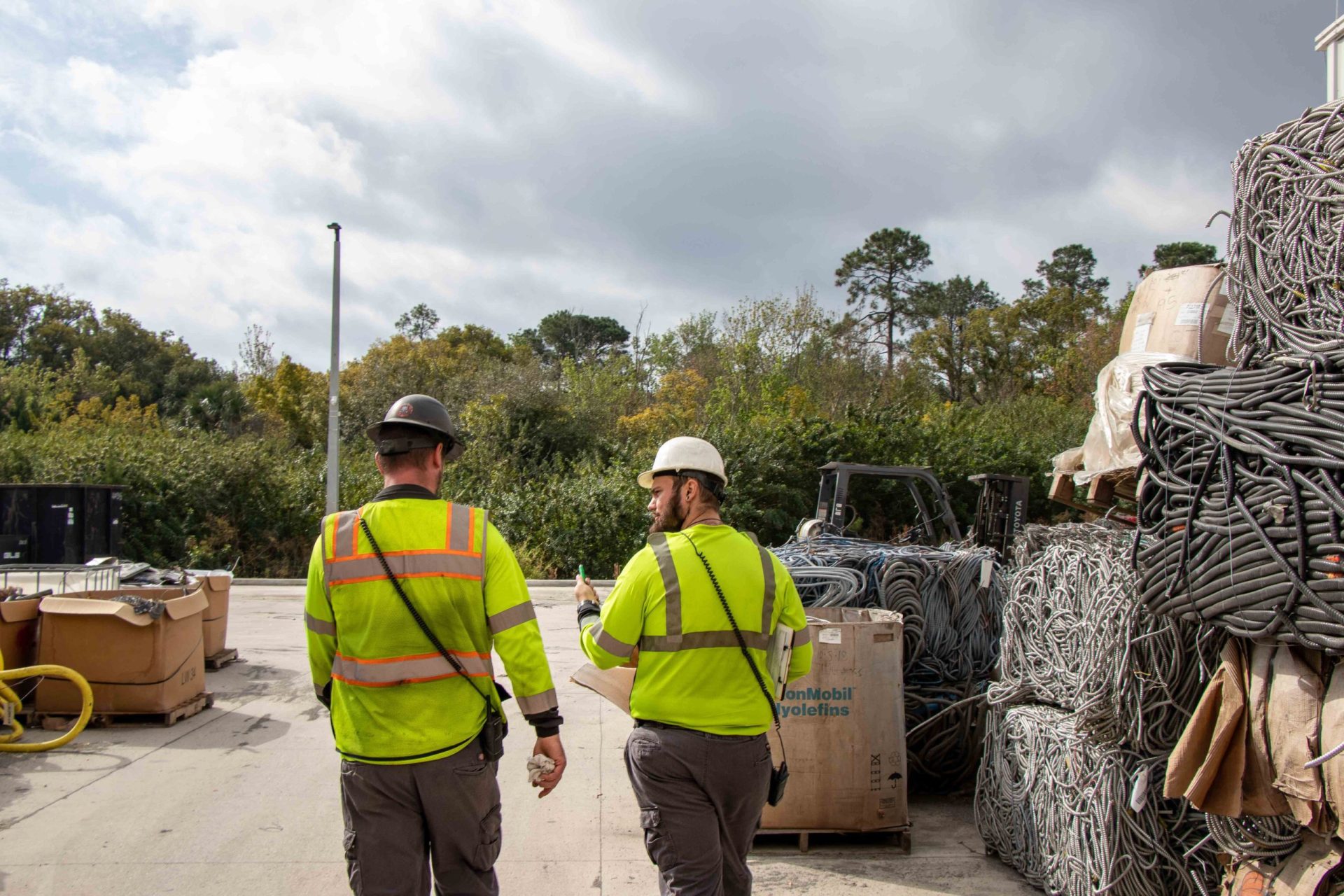
Must Read
Indoor Gun Range Recycling: Recycle Your Brass Shell Casings Responsibly
Are you a shooting range owner or a frequent visitor to indoor gun ranges? Have you ever wondered what happens to all those spent brass shell casings that pile up after shooting sessions? Recycling your brass shell casings not only promotes environmental sustainability but also contributes to responsible gun range management. In this article, we explore the importance of indoor gun range recycling and the benefits of recycling your brass shell casings.
Why Recycle Brass Shell Casings at Indoor Gun Ranges?
- Environmental Conservation: Recycling brass shell casings helps reduce the amount of waste sent to landfills, minimizing the impact on the environment. Brass is a valuable resource that can be reused in various industries, including ammunition manufacturing, construction, and more.
- Resource Conservation: By recycling brass casings, we conserve valuable natural resources. The recycling process requires less energy and raw materials compared to producing brass from scratch, making it a sustainable choice.
- Cost-Effective Management: Properly managing spent casings through recycling can be cost-effective for gun range owners. Recycling may offer financial incentives or reduce disposal expenses compared to traditional waste disposal methods.
- Promotion of Responsible Gun Ownership: Indoor gun range recycling demonstrates a commitment to responsible gun ownership. Encouraging customers to participate in recycling programs fosters a culture of environmental consciousness within the shooting community.
How to Recycle Brass Shell Casings at Indoor Gun Ranges:
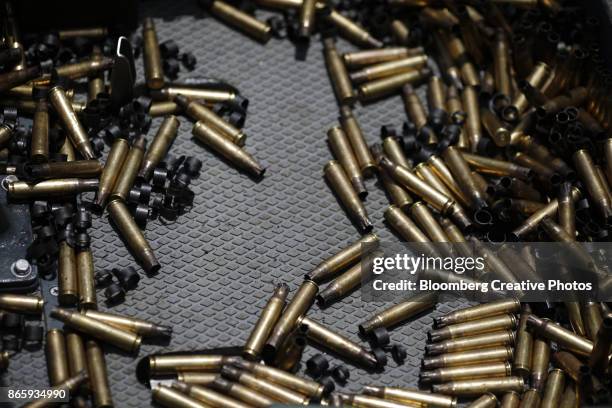
- Collect and Separate: Set up designated collection bins at your indoor gun range to collect spent brass shell casings. Encourage shooters to dispose of their casings responsibly. Additionally, sort the casings by caliber to streamline the recycling process.
- Partner with Recycling Centers: Seek partnerships with reputable scrap metal or recycling centers that specialize in brass recycling. These facilities can efficiently process large volumes of spent casings and ensure the brass is recycled responsibly.
- Education and Communication: Raise awareness among gun range customers about the importance of recycling brass shell casings. Display informative posters or provide pamphlets that explain the recycling process and its environmental benefits.
- Implement a Reward System: Consider implementing a reward system to incentivize shooters to participate in recycling efforts. Offer discounts, free range time, or other incentives to those who bring in their spent brass casings for recycling.
- Follow Safety Protocols: Ensure that all personnel and customers follow safety protocols when handling and transporting spent casings. Emphasize the importance of wearing appropriate protective gear, especially during the collection process.
- Compliance with Regulations: Familiarize yourself with local and state regulations regarding brass casing recycling and ensure your gun range operates in full compliance with these laws.
Be Part of the Solution: Recycle Your Brass Shell Casings
By embracing indoor gun range recycling and encouraging the responsible disposal of brass shell casings, shooting enthusiasts and range owners alike can make a positive impact on the environment. Recycling not only benefits the planet but also supports sustainable resource management and fosters a sense of community responsibility among gun owners.
Recycling Scrap Ammo, Take the first step towards responsible gun range management by implementing a brass casing recycling program at your indoor gun range. Together, let’s shoot for a greener and more sustainable future.
- Police Station: A police station is a facility operated by law enforcement agencies where police officers and other personnel work to maintain public safety and enforce laws. It serves as a central hub for police operations in a particular area. Citizens can visit the police station to report crimes, seek assistance, or make inquiries related to law enforcement matters. The police station is also where arrested individuals may be held temporarily until further action is taken.
- Gun Range: A gun range, on the other hand, is a designated location where people can practice shooting firearms in a controlled and safe environment. These facilities are often operated by private entities or shooting clubs, but some law enforcement agencies may have their own gun ranges for training purposes. Gun ranges provide a safe space for people to improve their shooting skills, learn about firearm safety, and familiarize themselves with different types of guns.
It’s crucial to exercise responsible firearm ownership and usage, and if you plan to visit a gun range, ensure you follow all safety rules and regulations to prevent accidents and promote a safe environment for everyone. Additionally, always comply with local laws and regulations regarding firearm ownership and use.
- Contact local law enforcement: If you have ammunition that you wish to dispose of, contact your local law enforcement agency or police station. They will be able to advise you on the appropriate way to handle and dispose of the ammunition in accordance with local regulations.
- Visit a shooting range or gun store: Many shooting ranges and gun stores offer ammunition disposal services. They can often handle the proper disposal of the bullets or ammunition for you.
- Follow local regulations: Regulations regarding the disposal of ammunition may vary depending on your location. Be sure to research and comply with the laws and guidelines specific to your area.
Ammo 101
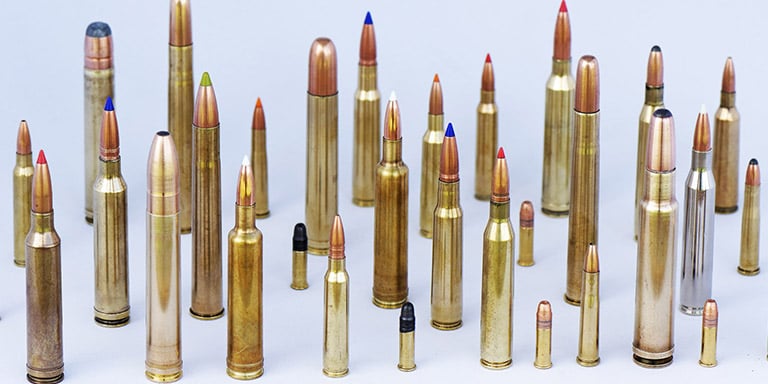
As for “Ammo 101” or learning about ammunition, it’s essential to prioritize safety and responsibility. If you have legitimate interests in learning about firearms and ammunition, there are various legal and safe ways to educate yourself, such as attending firearms safety courses, reading reputable books, or seeking guidance from licensed firearm instructors.
Remember, responsible firearm ownership and handling require a deep understanding of safety measures and local laws to ensure the safety of yourself and those around you. Always prioritize safety and legality when dealing with firearms and ammunition.
Environmental Impact of Recycling Scrap Ammo:
- Reduces Hazardous Waste: Recycling scrap ammo can prevent potentially hazardous materials from ending up in landfills, reducing the risk of soil and water contamination.
- Conservation of Resources: By recycling the materials used in ammunition, such as brass casings, lead, and copper, we can conserve valuable natural resources and decrease the need for mining and extraction.
- Energy Savings: Recycling typically requires less energy compared to producing new materials from raw resources, which helps in reducing greenhouse gas emissions.
- Prevention of Pollution: Recycling scrap ammo can help prevent the release of pollutants into the environment during the manufacturing process of new ammunition.
Benefits of Recycling Scrap Ammo:
- Environmental Conservation: As mentioned above, recycling helps to minimize the environmental impact associated with ammunition production and disposal.
- Cost Savings: Recycling scrap ammo can be more cost-effective than purchasing new materials, especially when the price of raw materials fluctuates.
- Resource Sustainability: Recycling contributes to the sustainable use of natural resources, promoting a circular economy model.
Tips for Recycling Scrap Ammo:
- Verify Local Regulations: Before attempting to recycle scrap ammo, ensure you are complying with local laws and regulations. Some areas might have specific rules governing the recycling of ammunition components.
- Separation of Components: If possible, separate the different components of the ammunition, such as brass casings, lead, and copper. This facilitates the recycling process.
- Contact Recycling Centers: Reach out to recycling centers or scrap metal dealers that accept ammunition components. Not all facilities may be equipped to handle this type of recycling, so it’s essential to inquire beforehand.
- Safety First: When handling scrap ammo, prioritize safety by wearing appropriate personal protective equipment (PPE) and following safety guidelines.
- Scrap Ammo Prices: The prices for scrap ammo components can vary depending on factors such as the type of metal, the quantity being recycled, and market demand. To determine specific prices, it’s best to contact local scrap metal dealers or recycling centers in your area. Keep in mind that scrap prices are subject to change based on market conditions.
Safety Precautions When Handling Amm
- Treat all ammunition as if it’s life: Always assume that any ammunition you encounter is live and capable of firing. Never handle it carelessly or playfully.
- Keep firearms unloaded: Ensure that firearms are unloaded before handling ammunition. Double-check the chamber, magazine, and action to confirm there is no ammunition present.
- Use a safe location: Handle ammunition in a safe area away from firearms, sources of ignition, and flammable materials.
- Wear appropriate safety gear: When handling ammunition, wear eye protection and hearing protection, especially if you are involved in activities like reloading ammunition.
- Don’t mix ammunition types: Never mix different types of ammunition in the same container or magazine, as this can lead to dangerous malfunctions.
- Store ammunition properly: Keep ammunition in a cool, dry place, away from direct sunlight, moisture, and extreme temperatures.
- Follow firearm safety rules: If you are loading or unloading a firearm, follow proper firearm safety rules, such as keeping your finger off the trigger until you are ready to shoot and always pointing the firearm in a safe direction.
- Don’t use damaged ammunition: Discard any ammunition that appears corroded, damaged, or has exposed primer. Using damaged ammo can result in misfires or malfunctions.
- Avoid direct impacts on ammunition: Don’t strike or hit ammunition with tools or other objects, as this can cause an accidental discharge.
- Use the correct caliber: Only use ammunition that matches the caliber or gauge specified for your firearm. Using the wrong ammunition can lead to catastrophic failures.
- Keep ammunition in its original container: Store ammunition in its original packaging or in an appropriate storage container to prevent confusion and ensure proper identification.
- Educate others: If you are introducing someone to firearms and ammunition, make sure they are well informed about safety rules and protocols.
- Dispose of old or unused ammunition properly: If you have old or unwanted ammunition, follow the recommended procedures for disposal, as mentioned in my previous response.
Conclusion
recycling scrap ammo can positively impact the environment by reducing hazardous waste and conserving resources. It also offers potential cost savings and contributes to sustainable resource management. However, it’s crucial to follow local regulations, handle materials safely, and consult with reputable recycling centers to ensure responsible recycling practices.
Must Read=Trails Carolina Horror Stories 2023
